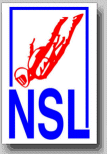
National
Skydiving
League
226 Pecan Street
Deland FL 32724
tel: (386) 801-0804
© 2003 - 2025
All Rights Reserved


226 Pecan Street
Deland FL 32724
tel: (386) 801-0804
© 2003 - 2025
All Rights Reserved


The rules of Formation Skydiving competition, judging in general and specific judging calls have been the topic for several stories in the past, as it happens in all other sports. The actual discussion of the same topics takes place mostly between the teams, competitors and coaches, and the media only picks it up randomly.
The topic itself was presented comprehensively during the coverage of the 4th DIPC 2013. However, the story was not over, as the Sun Path Products NSL News received "unfriendly feedback" from the judging side, which eventually motivated the author to take on the topic once again, this time from an even broader viewing angle. Blue Skies Mag published the article in the latest edition, which laments the lack of intense discussion of judging calls at the right time.

It was at the Dubai Cup 2013 this time when I felt like expressing my unhappiness with way too many incorrect judging calls. It seems to me I ike there has been progression in a bad direction, which became quite obvious once again at the competition in Dubai. The trouble has doubled in a quiet way that I try to bring to the attention of the officials. It has not been going too well so far.
Teams and competitors used to cry out loud in the old days when penalty calls were painful, and they tried to make their points during more or less productive discussions. It has always been difficult to get across the view of the teams and competitors to judges, as only a few of them have been active competitors, and even fewer have been training and competing recently.

However, it is easier to understand the deal and make good calls with expert knowledge and common sense if you know what you are doing. It is possible for a judge to get all the necessary knowledge and understanding without doing or having done the real thing. It takes much more homework though to prepare yourself and be up-to-date if you have to learn things only in theory. It is simply more work.
It has become much more challenging, too. The 4way winning average was 11.4 in 1985, and it was 27.9 at the Mondial 2012. That is 2.5 times higher and faster. The athletes made great efforts to increase the performance level with more sophisticated coaching and training methods, and the indoor training had its own share to increase speed and skills. Removing additional point deductions for penalties from the rules had an additional impact.

I am personally disappointed that the move has not brought the results yet that we expected. It seems like it has become even worse. There are still more than too many questionable judging calls, while the number of undetected infringements is rising. That's doubling the trouble - even if it may balance the situation for each team.![]()

This means that productive discussions, which bring up issues to the attention of the judges and officials, have sadly been fading away. It also gives the false impression that things are fine and dandy. It gives the impression that the judges are well prepared to master the challenges of top competition.
I am seriously questioning the efforts of the judges in general to be well prepared when they come to the meets where they decide over death and life, gold and silver medals, and cash or not. How many videos are they watching at home over the course of the year? How much time do they spend to be prepared? In contrast to the teams and competitors, they can even do it from home, and it doesn't cost any money. In fact, even going to the meets doesn't cost the judges any money, because their expenses are usually covered. That's not the case for the teams and competitors ...

The heated discussion needs to be carried out whenever there are issues - to get them out of the way and learn from the mistakes. Each single case needs to be brought to the attention of the judges, be evaluated and discussed. Only then there can be progression in a positive way. Keeping it quiet doesn't help at all and pretends that things are OK.
I will continue to speak my mind - whether it will get me in trouble or not. I will encourage teams to explain to the judges what they missed seeing, and I will encourage the judges to admit mistakes and learn from the direct conversations with teams and coaches. Applying common sense to the rules and communication are the first steps to increasing the judging quality.